That’s a wrap! After a two-year hiatus due to the pandemic, Berlin Fruit Logistica was back in full swing. Many in the produce industry wondered about what had changed and signs of the future. The largest produce conference in the world didn’t disappoint: pathways to greater sustainability and the need for innovation to reach new heights in a post-pandemic, climate-affected era.
Three of Apeel’s subject-matter experts attended the show to identify the top trends coming out of Berlin Fruit Logistica. Jessica Vieira (VP of Sustainability), Jessica Wright (Director of Product Marketing), and Savannah Braden (Associate Director of Technology) scoured the event to uncover what the future of food could bring to the world’s table.
Sustainability
Various dimensions of sustainability were visible throughout the show, and it’s clear that many companies are turning their focus here.
- Certifications: Many growers highlighted their certifications for good labor practices (e.g., Fair Trade) and soil health management (e.g., Organic), among other key issue areas. Global G.A.P., one of the most widely used farm-level certifications in the industry, announced its new flagship standard, Integrated Farm Assurance (IFA) version 6, and with it, a vision to offer more streamlined, intuitive, and digital solutions for the entire sector.
- Mitigating water risks: Researchers and industry associations shared insights and best practices on how the fresh produce industry measures and mitigates water risks. They also stressed the growing urgency to address these issues for food security and supply chain resiliency.
- Reducing plastic: Compared to prior years (pre-COVID and earlier), there were more sustainable alternatives to single-use plastic packaging and conversations about the recent French ban to limit single-use plastic packaging for fresh produce. Companies can no longer get away with using the same materials for packaging that they have in the past, and that change was evident. While some credentials are less robust than others, it was rare to find packaging in exhibitor booths without a supporting sustainability claim.
- EU Green Deal Compliance: Logistics companies - who were drawing larger crowds than in years past - were cognizant of pressures within the EU Green Deal to dramatically reduce the carbon footprint of shipping while ensuring supply chain dependability. Perishability presents challenges with longer shipping routes that will emit GHGs at lower rates, so these businesses are urgently looking for win-win solutions to meet customers’ needs and future sustainability mandates.
Tech & Innovation
There were clear themes of increased efficiency and automation across supply chain solutions and packline equipment. This included the collection and leveraging of data and advancements in machine learning and automation.
- Big data: The pandemic and recent supply chain challenges have accelerated the produce industry’s latent interest in big data and its associated use cases. Many companies were advertising the collection and use of big data to inform supply chain logistics and produce handling. This includes companies like:
- Deepfield Connect, a manufacturer of in-field sensors and software to warn growers of changes in the microclimate of their fields
- Hispatec, an ERP provider for farm, packing, logistics and tracking of fresh produce
- Sensitec, a manufacturer of sensors that can be used to track temperature and humidity conditions
- Xsense, a producer of real-time cold chain monitoring sensors
- Automation and AI: A notable number of on-stage talks were centered on the role of augmented reality (AR) and artificial reality (AR) in the food system of the future. Some of the more futuristic concepts included AR goggles that showed nutrition and real-time best buy dates for food in a grocery store. One even showed how with VR, consumers might one day experience the feeling of enjoying a meal on the other side of the world, even while eating at home.
- We also saw a rise in companies advertising automation and artificial intelligence for advanced handling and sorting, including:
- Aweta, Unitec, and MAF for in-line quality detection and sorting
- TopControl, a producer of custom pack line machinery for the automation of produce packaging by weight and/or size
Adapting to Consumer Demand for Ease & Sustainability
Companies promoted new products that seemed to be in response to key consumer trends and buying behavior. Most notably:
- Sustainability: This was by far the most frequently messaged value proposition from growers to shippers to packaging. It is clear consumers are being more calculated about what they purchase and seek products that do not negatively impact the environment.
- Snacking & convenience: There were many solutions for “grab n’ go” types of food in response to the busy consumer’s demand for prepared and snacking foods. Syngenta Vegetable Seeds has developed a new, long-stemmed cauliflower for snacking. Multiple companies also offered freeze-dried vegetables, grab n’ go packaging, and shelf-life extension for fresh-cut produce.
- Developments for taste: Several companies are developing products around specific flavor profiles from sweet to acidic. RedNoir Tomato took home an innovation award for a healthy, attractive, and surprisingly intense cocktail tomato with a shiny black skin and a red interior.
Berlin Fruit Logistica reminded us what we had missed these last few years, a true showcase of ideas and technologies, and the feeling of people and companies progressing side by side. We can’t wait to see where the work we saw on display leads.
Get in touch if you’re interested in discussing these insights and what they mean for your business.


